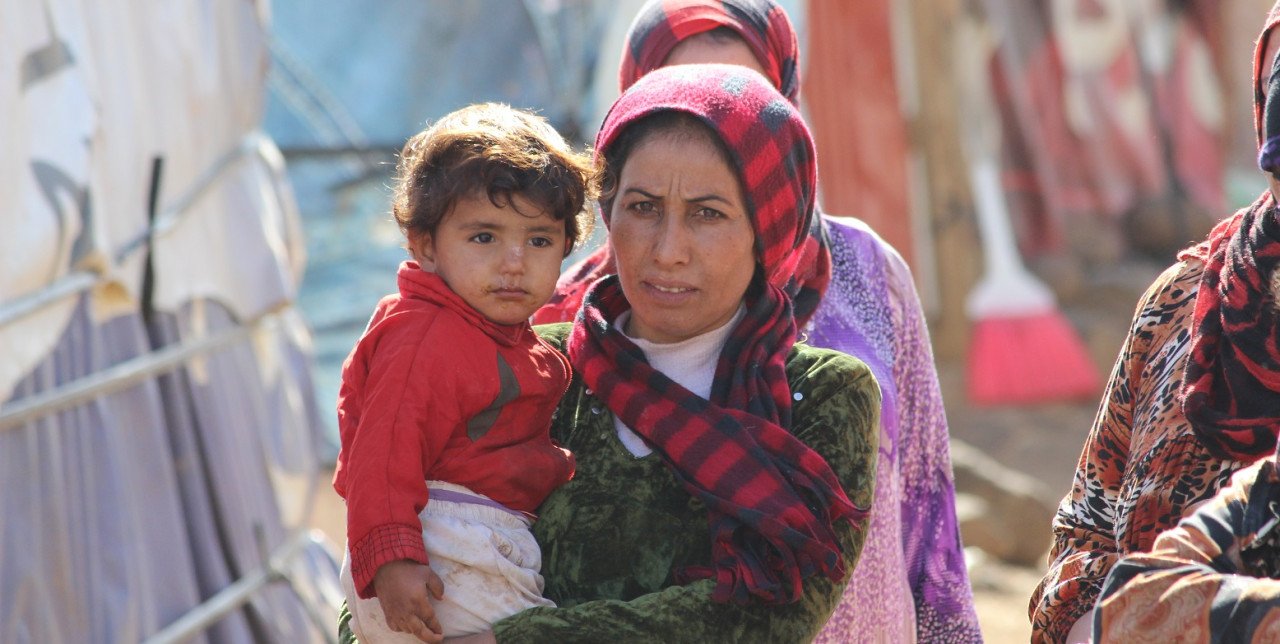26-01-2016 | di COOPI
The Syrian crisis as seen through our eyes
Francesco Lanino, head of the mission in Lebanon, tells us about the support offered to refugees and children fleeing the war.
The Syrian crisis has thousands, millions of faces. They often tell us about the war, the bombing, the revolts and the different military or terrorist strategies. Beyond the lenses of the front page stories, however, there are millions more involuntary protagonists, who COOPI and other NGOs or international organizations (Unicef, European Commission, UNHCR, ECHO, OCHA) support every day.
To understand the scale of the crisis, one figure is enough: more than 4 million refugees and about 7 million internally displaced people fleeing a war that has already caused about 250,000 deaths since the beginning of the conflict. A real human tide forced to flee in any direction promises a minimum of security and peace. Since 2013, COOPI has been trying to create these conditions, as far as possible, by working in the north of Lebanon, a country of 4 million inhabitants that receives over 1 million refugees, where there is also the threat of a latent conflict (on 12 November two suicide bombers killed 41 people in Beirut). The peak of this great escape from violence, and it does not matter whether it was caused by the Isis, the rebel militias or the Assad regime, was reached in July 2015, with over 1.2 million people seeking refuge in Lebanon.
"Now" - says the COOPI head of mission, Francesco Lanino- "the number is decreasing because we are surviving badly and the new escape routes are towards Turkey and therefore Europe". But when asked what will happen tomorrow, how the situation seems to evolve, if you can look with a little optimism at the future of these people, we respond a little 'dark in the face: "No one knows how things will go, no one even dares to predict. What is certain is that all the main players, from the Lebanese government to the large UN organisations, have long-term plans, as if to say that this crisis still has many faces to capture.
Even for COOPI (which has 4 expatriate workers on the ground and 30 local) all the projects in progress and others are waiting to be reconfirmed for 2016. In this complex territory, the humanitarian fronts are multiple and COOPI moves on different levels, with three specific projects. The first, carried out in collaboration with the local government, aims to ensure the availability of water in the most vulnerable areas of the country, those on the northern border, where thousands of Syrian refugees have settled. Here the objective is to ensure, through the creation of a water system, to about 105 thousand people between Syrians and Lebanese, the possibility of waiting for better times in hygienic-sanitary conditions.
Moreover, we cannot ignore the saddest consequence of a war that has lasted for years: the more than 200,000 children who cannot go to school or receive any kind of education, those little Syrians that Rober Fisk has defined as "The lost generation". A lost generation, deprived of the possibility of building its own future. Francesco Lanino told us about COOPI's project against this drift: "The main challenge is to integrate Syrian children into the Lebanese school system, which requires a basic level of French, mathematics and Arabic written for admission". "COOPI has also started the rehabilitation of 5 schools," continues Lanino, "to facilitate school education and offers economic support and transportation for over 2,000 Syrian children. In addition to this, the project also includes support courses to help young people pass the school entrance test. The possibility of attending a school is the only way to allow thousands of children to build a future even in a dramatic context like that of Syria in recent years.
In the same vein is the support of Conditional Cash Assistance that COOPI provides to about 1,000 people through a program of Cash for Work, or the opportunity for refugees to earn money through work within micro-projects that require manpower (construction of sidewalks, gardens, stairs, etc..). Projects that attack the war not only facing the emergency but rebuilding a "normal" future.

(Photo by Francesco Lanino.)




 Lebanon
Lebanon

